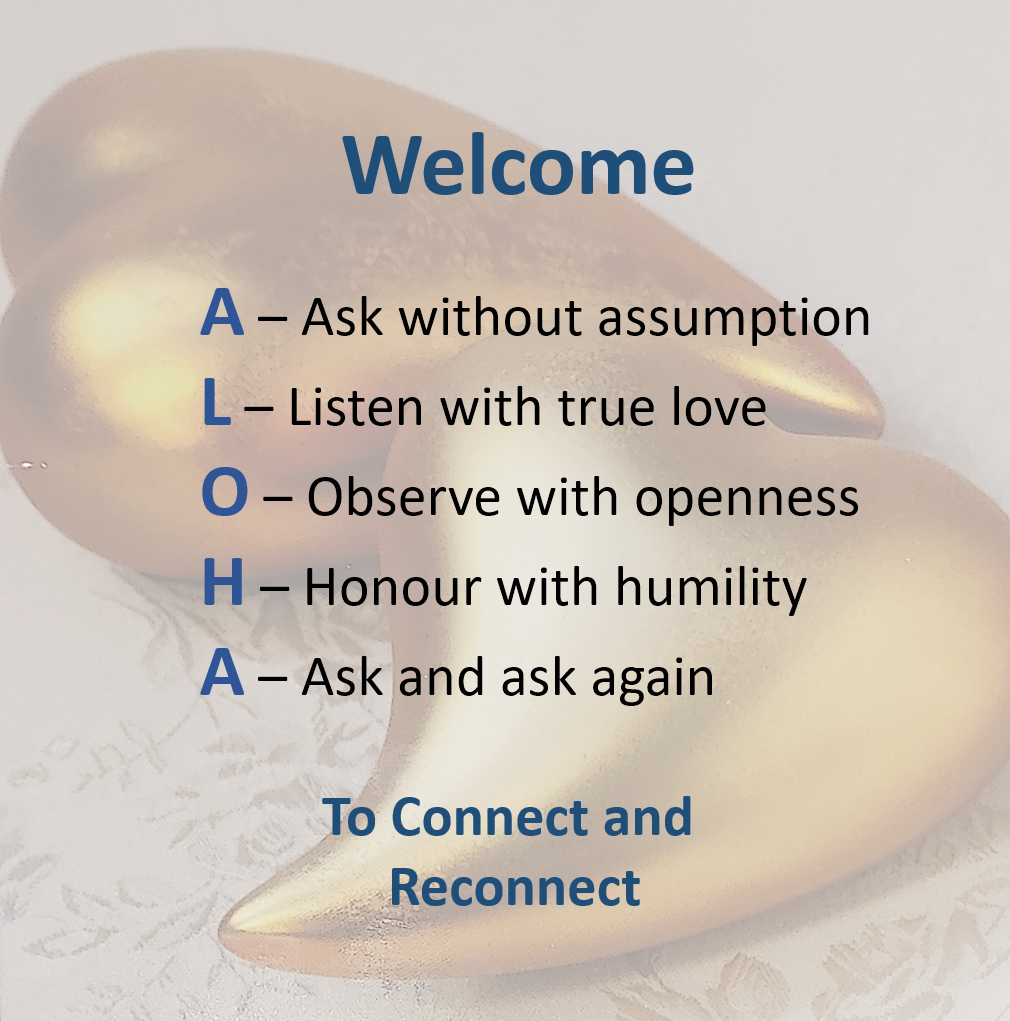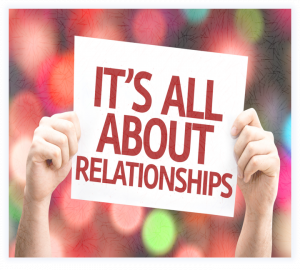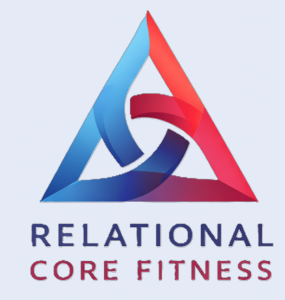A.L.O.H.A. and Welcome to Relational CORE Fitness
Thank you for following your curiosity and exploring Relational CORE Fitness – a practice devoted to strengthening our capacity for healthy and flourishing relationships – at home, at work, our community and society at large.
Just as we train our physical body to stay strong and balanced, we can train our relational capacity — awareness, compassion, and communication – our contextual, inner, and expressive capacity — to create joyful, life-giving relationships in our world of growing individualism, disconnect, and polarisation.
A.L.O.H.A. — A Relational Fitness Routine for Relational Capacity
As part of Relational CORE Fitness training, I have devised is a simple yet powerful tool:
A.L.O.H.A.
It reflects the Hawaiian spirit of love, peace, unity, compassion, and kindness — and serves as a reminder for mindful connection in everyday life.
A – Ask without assumptions
Invite curiosity and understanding rather than judgment.
L – Listen with love
Tune into what’s alive beneath the surface in ourselves and others.
O – Observe with openness
See from new perspectives, guided by empathy and love.
H – Honour with humility
Respect emotions and needs, our own and others’, with grace.
A – Ask again and again
Return to love — not fear — as our foundation for communication.
Strengthen Your Emotional Muscles
Practising A.L.O.H.A. helps activate our relational core fitness — the strength to stay grounded and compassionate, even during stress or misunderstanding.
Instead of reacting from fear or habit, we learn to respond from our core — balancing our emotional awareness with relational presence.
This is our emotional fitness in motion: awareness as our anchor, curiosity as our guide, compassion as our strength.
Conscious Communication in Action
Most of us were never taught how to listen deeply, or ask meaningful questions – to remain critically mindful. We fall into old patterns — rushing, assuming, defending — instead of connecting.
Let’s ask ourselves:
-
- How do I respond when emotions rise?
- Am I reacting from fear or responding with care?
- Do I listen to understand or to be right?
When we develop relational fitness, we move from reactivity to relational clarity.
We strengthen our ability to regulate emotions and create relational empowerment, even when things get hard.
Co-Regulation — The Power of WE
Relational CORE Fitness reminds us that we are co-creators in every relationship.
We continuously influence — and are influenced by each other’s emotions and environmental energy.
Through critical mindfulness and relational fitness practices, we can build emotional safety, nurture empathy, and sustain meaningful connections.
Reflection as Daily Practice
Reflection is where growth begins.
Let’s take a pause and ask:
-
- What stories shape how I show up in relationships?
- Where do I tend to close off or overextend?
- What helps me feel most connected — to myself and to others?
Each moment of awareness strengthens our relational capacity, helping us grow in resilience, kindness, and connection.
Living Connected in the Spirit of A.L.O.H.A.
In a world that often celebrates independence over interdependence, Relational CORE Fitness calls us back to connection.
Through the pillars of
-
- Relational Intelligence – Contextual Capacity
- Emotional Empowerment – Inner Capacity
- Conscious Communication – Expressive Capacity
we can transform disconnection into understanding, estrangement into reconnection, and cultivate meaningful relationships that thrive.
Let’s dare to care, connect, and live guided by A.L.O.H.A. — always returning to love as our guiding force.
Join me, Dr Birgit Trauer, relationship wellness coach and founder of the Relational CORE Fitness program and begin your journey today.







I am extremely inspired with your writing talents as neatly as with the layout to your weblog. Is that this a paid subject matter or did you customize it yourself? Either way stay up the excellent high quality writing, it’s uncommon to peer a great weblog like this one these days!
Hello, thank you and just a quick reply. The whole program and the subject matter is based on my extensive research and fully composed by myself without the help of AI. The program I am offering is a paid one, soon to be launched as a face-to-face concept in Melbourne, Australia. Regards, Birgit